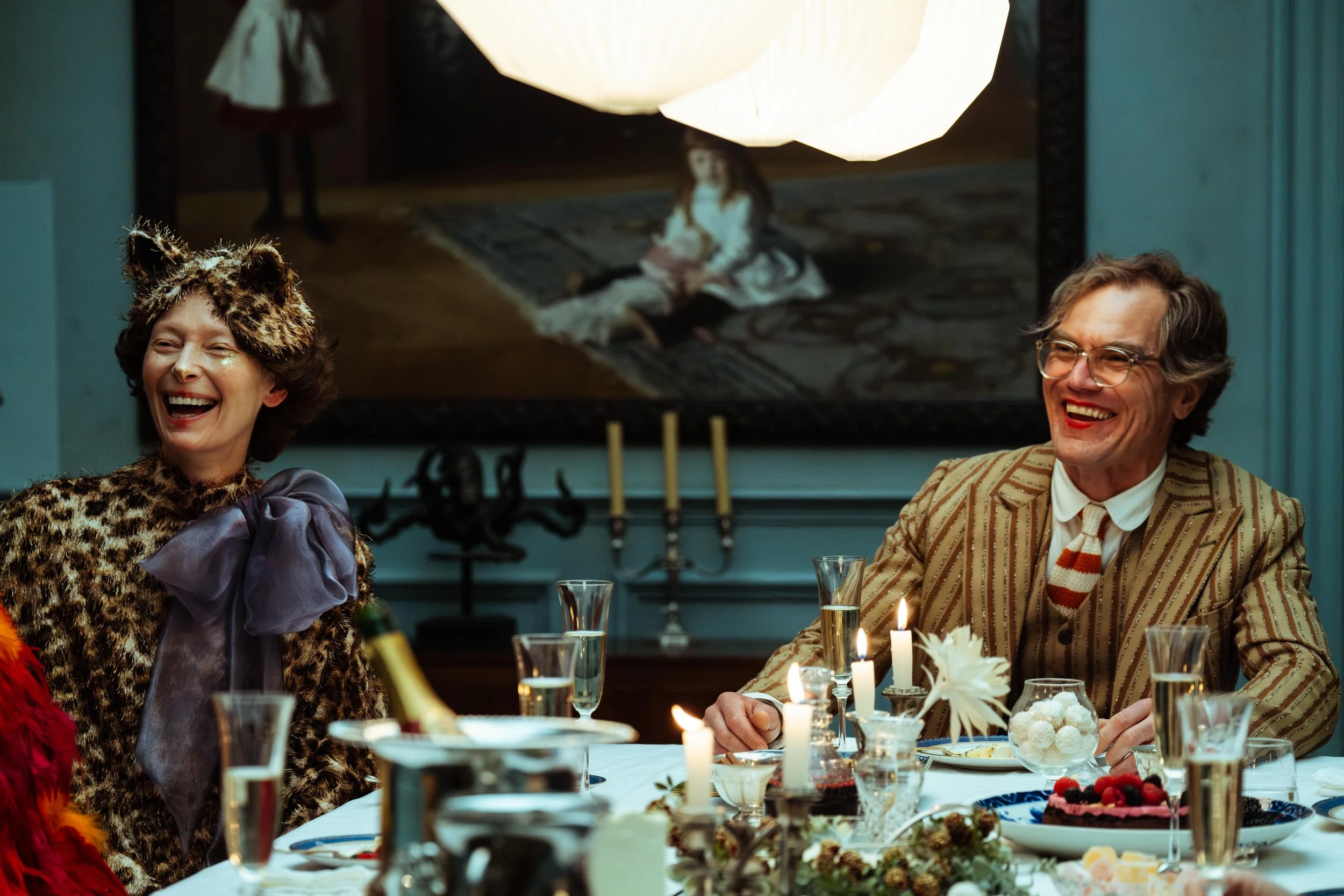Review: "The End" plays in a post-apocalyptic world where the musical numbers turn absurdity into heightened emotional reality
The end of the world, as we know it, should not be a reason to sing — so the fact that the family that is riding out the apocalypse in director Joshua Oppenheimer’s “The End” does sing their feelings, in emotional musical numbers, adds to the absurdity of this strangely beautiful movie.
The movie takes place in what appears to be a rich family’s home, where well-appointed furniture fills every room and expensive paintings line the walls. We’re soon informed that this “home” is deep within a salt mine, and the family has lived here for some a while, as some sort of catastrophe is taking place on the surface. We aren’t told the details of how the family got here, other than the fact that the mom (played by Tilda Swinton) was pregnant when they descended, and her son (George Mackay) is now around 20 years old.
Also living down there are the father (Michael Shannon), the mother’s longtime best friend (Bronagh Gallagher), the family butler (Tim McInnerny) and their in-house doctor (Lennie James). You have already noticed that these characters don’t have names — which is apparently by design, as it’s suggested that these are the last mother, the last father, and the last friend, son, butler and doctor left on Earth.
The family lives their life in a well-ordered routine. Mom regularly takes down artwork so the butler can repaint the walls. The doctor gives everyone their medications. And the son is ghost-writing the father’s autobiography, in which Dad highlights the wonderful work he did as the CEO of an energy company — rejecting the notion that his company’s refusal to acknowledge climate change may have led to the calamity that hs put them in this underground chamber.
One day, in the middle of this regular routine, something different happens: A young woman (Moses Ingram) makes her way into the family’s space. Mom and the doctor are adamant that the woman be forced to leave, following the protocol to reject strangers so they can stay safe. But Dad rejects the protocol and lets the woman stay — a decision that has far-reaching consequences, particularly for the son, who has never seen a female his own age before.
Oppenheimer is making his first dramatic feature, after a pair of heartbreaking and landmark documentaries — “The Act of Killing” and “The Look of Silence” — about the dictatorshop that ruled Indonesia for decades. Those movies took reality and amped the intensity to heartbreaking levels of unreality. Here, Oppenheimer finds the dial works the other way, and that ratcheting the unreality to 11 makes a movie that feels real even in its most offbeat moments.
Swinton and Shannon are nicely matched as upper-class parents for whom 20 years in a salt mine is just a more extreme version of what they did before: using their money as a shield to block out the problems outside their world. Mackay as the spoiled scion and Ingram as the first new person he’s ever seen juxtapose the diametrically opposed views of what’s real — thanks to his lack of experience with the outside, and her knowledge of the horrors up top. Together, these characters make “The End” a biting and melancholy parable of the struggles, particularly between classes, that threaten to destroy us all.
——
‘The End’
★★★1/2
Opens Friday, December 13, in theaters. Not rated, but probably R for violence and language. Running time: 148 minutes.







